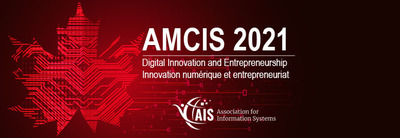Loading...
Paper Number
1129
Theme Table
5
Abstract
In tandem with the rapid development of digital technology, digital entrepreneurs emerge in all the sectors with diverse talents and perspectives. They hold different personality traits that determine their entrepreneurial behavior. Understanding these traits is crucial to not only educating and mentoring digital entrepreneurs but also developing and supporting new digital venturers. The process of identification and classification of different personalities refers to ‘profiling’. While previous research examined the profiles of traditional entrepreneurs, less attention has been paid yet to the personality of digital entrepreneurs. Hence, this study is an attempt to ‘profile’ digital entrepreneurs based on their key personality traits along with the key operational dimensions of digital entrepreneurship. We defined ‘digital entrepreneurship’ as a set of mindset, competencies and actions to establish and run a viable, profitable and sustainable startup offering digital solutions. From this perspective, many individual factors influence the success of digital entrepreneurship. Among these factors, it is of importance to understand, inspire, motivate and train the mindsets of digital entrepreneurs. While we acknowledge the impracticality of changing entrepreneurs’ personalities, we believe their mindset is malleable. In particular, we claim a mindset could be enhanced if it is targeted with a right intervention (e.g., mentorship) and understanding the underlying personality of that mindset is the key to design such intervention. Mindset is defined here as belief defining an entrepreneur’s attitude toward entrepreneurship and corresponding behavioral preferences. Our exploratory study identified four key groups of digital entrepreneurs with specific personality traits. These four groups are associated with four types of entrepreneurs namely visioners, inventors, builders, and networkers. Visioners are conscientious thinkers who have missions, for example to solve a social problem such poverty, but not necessarily have the knowledge to establish a digital venture that tackles such problem. The mindset of this groups is centered around ‘know-why’—why to establish a digital venture. The second group, inventors, are creative individuals who can lead the design and development of novel digital solutions. These individuals do not necessarily have the drive motivated by a cause but have creative talent to create novel digital solution. Openness and need for cognition are the main personality traits of this group. Their mindset mainly renders the perception that ‘know-what to create’ is more important than ‘know-why to create’. The third group, builders, have neither a strong ‘why’ to follow nor the creativity to invent digital solutions. However, they have the potential to plan and build a business by offering digital solutions at scale. They have a builder mindset with an emphasis on ‘know-how’ and personality traits such as initiative, sensing and judging. Lastly, we identified the fourth group of entrepreneurs who are more interested in business development, networking and socializing; we named this group networkers. This group can be distinguished from other groups with their ‘know-who’ mindset and extraversion and optimist personality. We recognize each identified profile represents a continuum and a digital entrepreneur can fall anywhere on that continuum. The classification of digital entrepreneurs based on these profiles offers an opportunity for understanding entrepreneurs’ behavior. This also helps with the design of entrepreneurial mentorship and training systems while supporting entrepreneurial activities such as team-building, co-founders’ evaluation and training, goal-setting and planning.
Recommended Citation
Ortiz Sandoval, Ivan and Abhari, Kaveh, "Profiling Digital Entrepreneurs" (2021). AMCIS 2021 TREOs. 46.
https://aisel.aisnet.org/treos_amcis2021/46
Rate Potential Impact
Rate Novelty/Interesting
When commenting on articles, please be friendly, welcoming, respectful and abide by the AIS eLibrary Discussion Thread Code of Conduct posted here.


